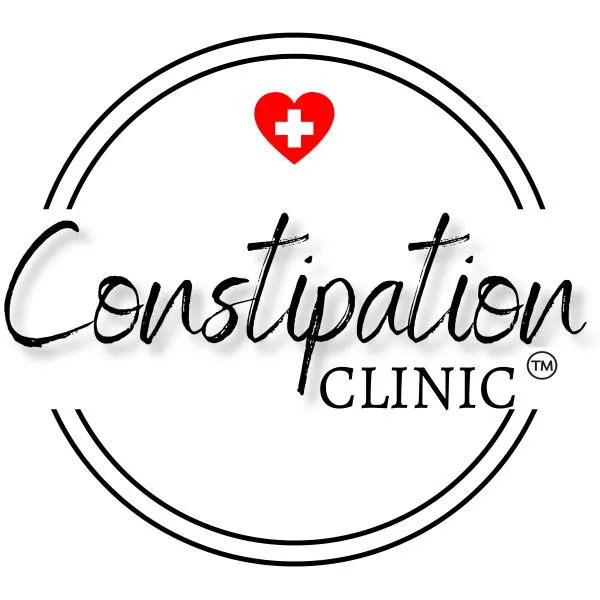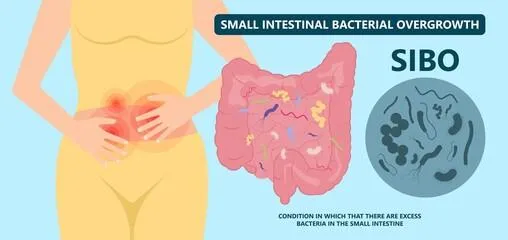
Common Causes of Constipation
For the majority of constipation sufferers getting to the cause of the constipation will often lead to the cure. All too often, individuals are given a label, IBS for example, only to go home with a diagnosis with little information or testing offered to identify WHY? What happened in your life that contributed to you being constipated now?
This often becomes a hamster wheel that is difficult to step off of as the infecting organisms or pathogens grow very well in the constipated environment.
Common Causes of Constipation (Type 2-4)
For the majority of constipation sufferers getting to the cause of the constipation will often lead to the cure. All too often, individuals are given a label, IBS for example, only to go home with a diagnosis with little information or testing offered to identify WHY? What happened in your life that contributed to you being constipated now?
This often becomes a hamster wheel that is difficult to step off of as the infecting organisms or pathogens grow very well in the constipated environment.
Here are some common underlying causes of constipation
Gut Infection
The most common culprits are bacterial, fungal, viral and parasitic. Most think they are only susceptible to these types of illness if they have traveled outside the US. Wrong. Some of the worst parasite cases I have come across have never left the country. Many of these infections stem from the treatment of other infections in the patient, which in turn wipes out the protective and healthy gut flora. So if you have been on antibiotics for any other malady and suffer from constipation and digestive discomfort, you very likely fall into this category. You may think that this is hard to treat as identifying the actual offending agent may not be so easy. What I need to remind you is that many remedies address at least three out of four of these types of pathogens.
Adhesions or Surgical Injury
Prior surgical procedures can often lead to adhesions that interfere with normal bowel function or peristalsis that may worsen over time. Once the surgical site is fully healed, massage and castor oil pack (link to the massager and cast oil pack site) applications may go a long way in helping and potentially reversing the situation. This in combination with proactive supplementation from our free TOOLBOX, can prevent future chronic constipation
Abnormal Anatomy
In practice, I feel that approximately 15% of my chronically constipated patients suffer from an abnormal colon shape, size, and location within the abdomen.

Small Intestinal Bacterial Overgrowth (SIBO)

Small Intestinal Bacterial Overgrowth is fast becoming a common term in the land of GastroIntestinal health. SIBO is characterized by an increased number and/or abnormal type of bacteria in the small intestine. Because these bacteria generally live in the large intestine, they are mostly species that ferment carbohydrates into hydrogen gas, contributing to diarrhea or archaea (not technically bacteria) that produce methane gas, contributing to constipation.
Some studies suggest that up to 85% of individuals diagnosed with IBS actually suffer from SIBO.
Food Sensitivity / Poor Diet Choices
How can a food that has not bothered you your entire life now become a sensitivity that contributes to your constipation? Well, The good news is, once you fix the underlying condition, you may once again be able to enjoy food that currently sends you into a tailspin. The bad news is, once these foods are identified, you will need to avoid them while the repair work is being done. There are some relatively inexpensive food testing options that you can do in the privacy of your own home.
Diets that consist of highly processed foods (long ingredient lists), sugar, refined carbohydrates, unhealthy fats and chemical additives will alter your body's ability to digest properly.
The #1 dietary cause of constipation seems to be dairy for the majority of my patients. Yes, even yogurt, may play a disturbing role in your constipated condition. Gluten is also suspect for many who suffer from constipation, but many of the gluten-free alternatives can be just as disruptive.
Those following a low carb / Keto diet protocol often find themselves constipated as they lack fruit and vegetable fiber which is essential for healthy bowel function.
Many of my patients have found that the LOW-FODMAP-Diet has helped them, sometimes more than just eliminating dairy and gluten. For those struggling, giving the Low-FODMAP-Diet a try may prove to be worthwhile.
For more information on foods that cause constipation, treat constipation, and priceless recipes, See my FOOD HACKS: Foods & Recipes for Constipation
Contributing Factors for Constipation
Stress
High amounts of stress alters hormone and neurotransmitter production, which has a direct influence on muscle tension, inflammation, enzyme production and overall digestive functioning.
Inactivity
Exercise helps to increase blood flow, strengthens muscles within the digestive tract and helps control stress.
Medication and Opioids
Many common medications contribute to constipation. See them here.
Thyroid or hormonal problems
Menopause, PMS, eating disorders, diabetes and thyroid disorders like hypothyroidism can all cause signs of constipation. Other diseases that might contribute to constipation include Parkinson’s disease, spinal injuries or neurological issues, such as Muscular Sclerosis, that affect nerves in the GI tract.
Magnesium deficiency
Magnesium is an electrolyte that helps with normal muscle functioning. Your colon is a muscle (as is your heart). Too little magnesium in your diet can contribute to muscle tension and also worsen symptoms of emotional stress. Magnesium (link to picture/location to buy etc) is the first line of defense against constipation. Once magnesium becomes a daily staple, many individuals no longer suffer from constipation. Muscle cramping is a sign of magnesium deficiency.

Bad bathroom habits
Do you rush out the door in the morning before you have adequate time for a good bowel movement? Are you poop shy (will not have a bowel movement unless they are in their own home)? Do you have a job that prevents you from just being able to go to the bathroom when the urge strikes (teachers and nurses are a high risk population for this).
These scenarios are common reasons for being constipated. If this describes you, you must reconsider your thoughts on this and remind yourself that as the best-selling children’s book says, “Everybody Poops”. Poop Sprays such as Poo-Pourri or my absolute favorite MASK Toilet Spray in Coconut- Lime scent are travel friendly and really do the job. Just a Drop is another option that works well.
Poor Positioning
The regular toilet position does very little when it comes to assuming a healthy pooping position. Back in the day, squatting was the way to go and still is in some countries. There are thankfully many products that can help us overcome this problem and many of my patients are extremely surprised how much this inexpensive and easy application can help. The SQUATTY POTTY comes in a variety of colors such as white and wood, styles, and prices.
Poor sleep, jet lag and traveling
These factors can throw off your digestive regularity and lead to constipation symptoms. This is a common scenario that leads to Type 1 constipation
Older age
Sometimes older adults lose interest in food preparation and the desire to eat fresh and nutritious foods. This, in combination with slower metabolism, may contribute to constipation.
Here are some common underlying causes of constipation
Gut Infection
The most common culprits are bacterial, fungal, viral and parasitic. Most think they are only susceptible to these types of illness if they have traveled outside the US. Wrong. Some of the worst parasite cases I have come across have never left the country. Many of these infections stem from the treatment of other infections in the patient, which in turn wipes out the protective and healthy gut flora. So if you have been on antibiotics for any other malady and suffer from constipation and digestive discomfort, you very likely fall into this category. You may think that this is hard to treat as identifying the actual offending agent may not be so easy. What I need to remind you is that many remedies address at least three out of four of these types of pathogens.
Adhesions or Surgical Injury
Prior surgical procedures can often lead to adhesions that interfere with normal bowel function or peristalsis that may worsen over time. Once the surgical site is fully healed, massage and castor oil pack (link to the massager and cast oil pack site) applications may go a long way in helping and potentially reversing the situation. This in combination with proactive supplementation from our free TOOLBOX, can prevent future chronic constipation
Abnormal Anatomy
In practice, I feel that approximately 15% of my chronically constipated patients suffer from an abnormal colon shape, size, and location within the abdomen.

Small Intestinal Bacterial Overgrowth (SIBO)

Small Intestinal Bacterial Overgrowth is fast becoming a common term in the land of GastroIntestinal health. SIBO is characterized by an increased number and/or abnormal type of bacteria in the small intestine. Because these bacteria generally live in the large intestine, they are mostly species that ferment carbohydrates into hydrogen gas, contributing to diarrhea or archaea (not technically bacteria) that produce methane gas, contributing to constipation.
Some studies suggest that up to 85% of individuals diagnosed with IBS actually suffer from SIBO.
Food Sensitivity / Poor Diet Choices
How can a food that has not bothered you your entire life now become a sensitivity that contributes to your constipation? Well, The good news is, once you fix the underlying condition, you may once again be able to enjoy food that currently sends you into a tailspin. The bad news is, once these foods are identified, you will need to avoid them while the repair work is being done. There are some relatively inexpensive food testing options that you can do in the privacy of your own home.
Diets that consist of highly processed foods (long ingredient lists), sugar, refined carbohydrates, unhealthy fats and chemical additives will alter your body's ability to digest properly.
The #1 dietary cause of constipation seems to be dairy for the majority of my patients. Yes, even yogurt, may play a disturbing role in your constipated condition. Gluten is also suspect for many who suffer from constipation, but many of the gluten-free alternatives can be just as disruptive.
Those following a low carb / Keto diet protocol often find themselves constipated as they lack fruit and vegetable fiber which is essential for healthy bowel function.
Many of my patients have found that the LOW-FODMAP-Diet has helped them, sometimes more than just eliminating dairy and gluten. For those struggling, giving the Low-FODMAP-Diet a try may prove to be worthwhile.
For more information on foods that cause constipation, treat constipation, and priceless recipes, See my book FOOD HACKS: Foods & Recipes for Constipation
Contributing Factors for Constipation
Stress
High amounts of stress alters hormone and neurotransmitter production, which has a direct influence on muscle tension, inflammation, enzyme production and overall digestive functioning.
Inactivity
Exercise helps to increase blood flow, strengthens muscles within the digestive tract and helps control stress.
Medication and Opioids
Many common medications contribute to constipation. See them here.
Thyroid or hormonal problems
Menopause, PMS, eating disorders, diabetes and thyroid disorders like hypothyroidism can all cause signs of constipation. Other diseases that might contribute to constipation include Parkinson’s disease, spinal injuries or neurological issues, such as Muscular Sclerosis, that affect nerves in the GI tract.
Magnesium deficiency
Magnesium is an electrolyte that helps with normal muscle functioning. Your colon is a muscle (as is your heart). Too little magnesium in your diet can contribute to muscle tension and also worsen symptoms of emotional stress. Magnesium (link to picture/location to buy etc) is the first line of defense against constipation. Once magnesium becomes a daily staple, many individuals no longer suffer from constipation. Muscle cramping is a sign of magnesium deficiency.

Bad bathroom habits
Do you rush out the door in the morning before you have adequate time for a good bowel movement? Are you poop shy (will not have a bowel movement unless they are in their own home)? Do you have a job that prevents you from just being able to go to the bathroom when the urge strikes (teachers and nurses are a high risk population for this).
These scenarios are common reasons for being constipated. If this describes you, you must reconsider your thoughts on this and remind yourself that as the best-selling children’s book says, “Everybody Poops”. Poop Sprays such as Poo-Pourri or my absolute favorite MASK Toilet Spray in Coconut- Lime scent are travel friendly and really do the job. Just a Drop is another option that works well.
Poor Positioning
The regular toilet position does very little when it comes to assuming a healthy pooping position. Back in the day, squatting was the way to go and still is in some countries. There are thankfully many products that can help us overcome this problem and many of my patients are extremely surprised how much this inexpensive and easy application can help. The SQUATTY POTTY comes in a variety of colors such as white and wood, styles, and prices.
Poor sleep, jet lag and traveling
These factors can throw off your digestive regularity and lead to constipation symptoms. This is a common scenario that leads to Type 1 constipation
Older age
Sometimes older adults lose interest in food preparation and the desire to eat fresh and nutritious foods. This, in combination with slower metabolism, may contribute to constipation.

MEDICAL DISCLAIMER
This website does not provide medical advice that would take the place of your physician or health care provider. The information included, but not limited to text, graphics, images and other material contained on this website are for informational purposes only. No material is a substitute for diagnosis and treatment but should be discussed with your health care team prior to initiating as they are familiar with your unique issue. Always seek out the advice of your medical physician or health care provider for issues with constipation. Do not delay seeking care as a result of information on this website.
